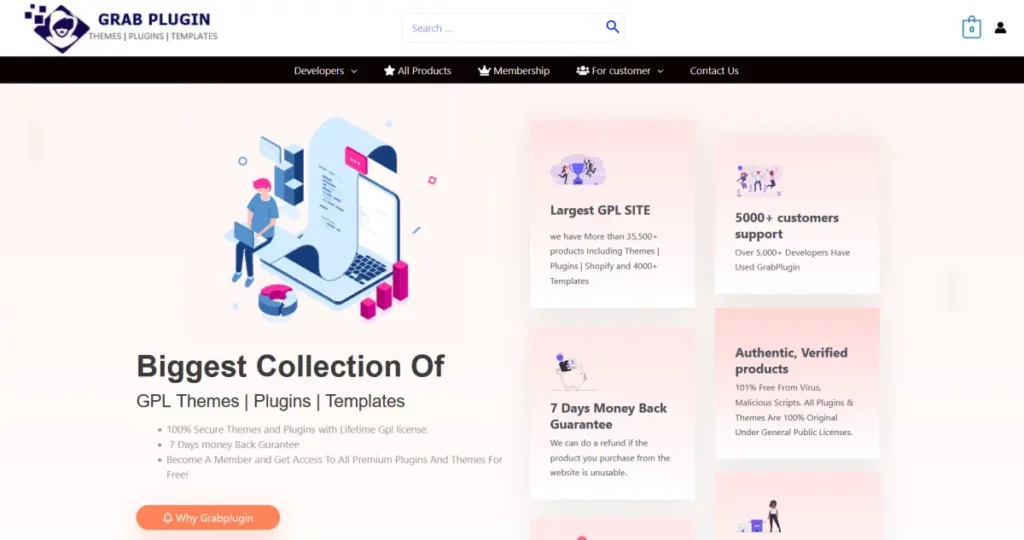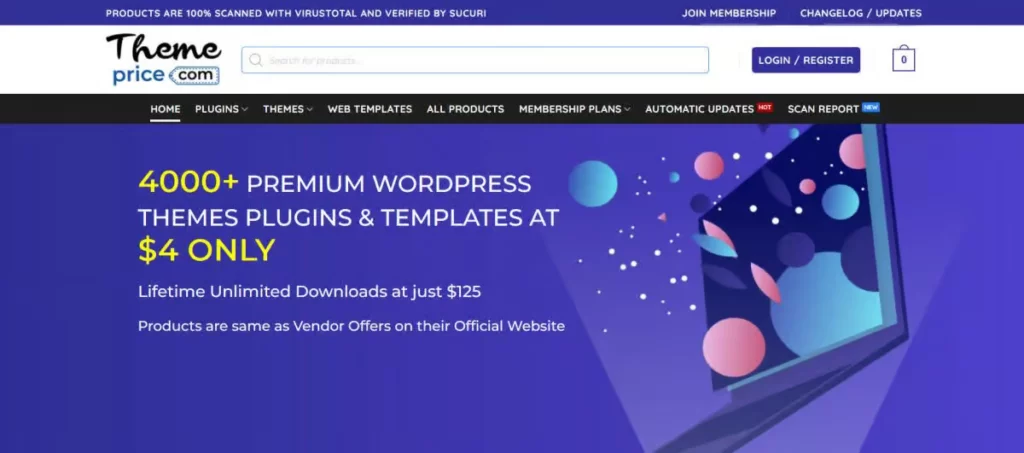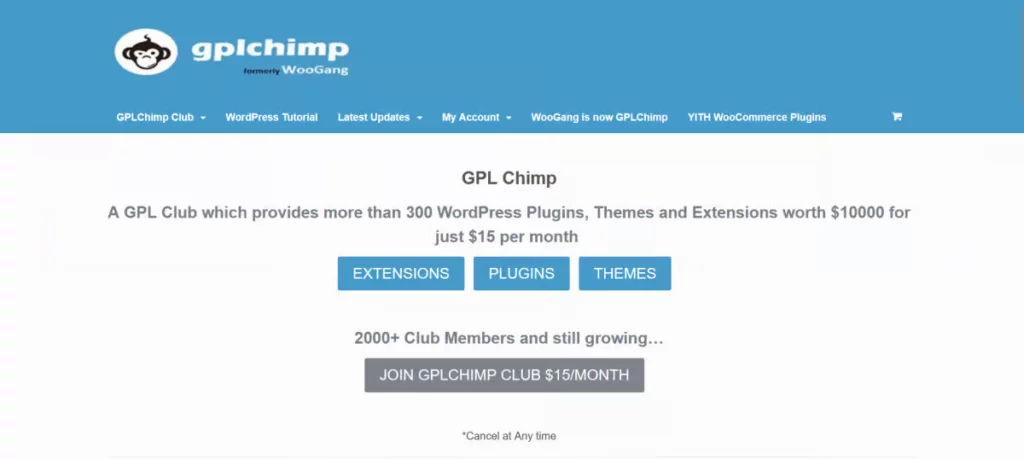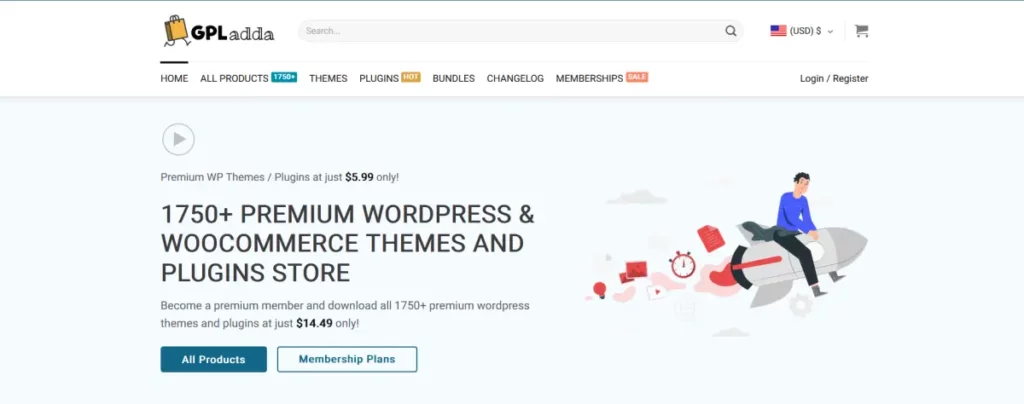In the expansive domain of website creation and content management, WordPress stands as the preeminent leader, facilitating the operation of millions of websites across the globe. Yet, beneath its intuitive interface and comprehensive plugin repository lies a crucial element that distinguishes this content management system: the WordPress GPL (General Public License).
Employing the GNU General Public License (GPL), WordPress ensures that all derivative works—including themes and plugins crafted for the platform—are inherently governed by the GPL. A thorough comprehension of this license is indispensable for WordPress developers to guarantee rigorous compliance when disseminating themes, plugins, and software updates.
Likewise, users who integrate elements derived from WordPress’s code into their websites must also appreciate the nuances of the GPL to maintain adherence to its stipulations. Mastery of these license requirements is essential for fostering a legally sound and cohesive ecosystem within the WordPress sphere.
What is WordPress GPL?
The General Public License (GPL) is a pivotal framework for free software designed to advance open-source principles and foster collaboration. Introduced by Richard Stallman in 1989, the GPL has become a leading model in the software industry, establishing standards for software freedom and community-driven development.
WordPress operates under the GNU General Public License (GPL), which ensures that the software is freely available for use, modification, and distribution. This licensing framework empowers individuals and organizations to adapt and share WordPress without restrictions, reinforcing a collaborative environment that drives innovation and maintains an open and inclusive digital ecosystem.
How Does the WordPress GPL Function?
Three foundational principles underpin the WordPress website GPL license:
- Freedom to Use: Users are entitled to operate the software for any purpose they see fit, without restriction.
- Freedom to Study and Modify: The license grants users access to the software’s source code, allowing them to examine and alter it to meet their specific requirements.
- Freedom to Distribute: Users can distribute the software’s original or modified versions to others, whether for free or for a fee.
Why You Might Appreciate the WordPress GPL
1. Freedom and Openness
The GNU General Public License (GPL) stands as a testament to the principles of free and open-source software. It grants users the liberty to use, examine, modify, and distribute the software at their discretion. This intrinsic freedom fosters a culture of transparency and cooperative advancement, where ideas and improvements are freely exchanged and developed.
2. Community Collaboration
The adoption of the GPL engenders a vibrant, diverse community of developers, enthusiasts, and contributors. This collective involvement accelerates software development, facilitates rapid bug fixes, and supports the integration of innovative features. The GPL’s collaborative spirit thus becomes a catalyst for technological progress and refinement.
3. Viral Nature
A defining feature of the GPL is its “viral” nature, which mandates that any derivative work must also be licensed under the GPL. This ensures that modifications or extensions of GPL-licensed software must be shared under the same terms.
Such a stipulation perpetuates the open-source ethos, maintaining the software’s freedom and accessibility across its entire lifecycle.
4. Protection of User Rights
The GPL emphasizes safeguarding user rights by ensuring that the source code remains accessible. This transparency allows users to inspect the software’s functionality and security, thereby fostering trust between developers and users.
The clarity provided by the GPL reassures users of their rights and the integrity of the software they employ.
5. Long-Term Viability
Leveraging the WordPress GPL framework ensures the sustained viability of software projects. The open-source nature of the GPL means that even if original developers withdraw, the community can continue to enhance and maintain the software. This communal stewardship secures the project’s future and ongoing relevance.
6. Compatibility with Other GPL Software
GPL-licensed software integrates effortlessly with other projects under the same license, creating a cohesive ecosystem of compatible tools and extensions. This compatibility enhances the overall functionality and interoperability within the open-source community.
7. Legal Framework
The GPL provides a well-defined legal framework for the distribution of software. It clarifies how software can be used, modified, and shared, thereby minimizing legal ambiguities and conflicts. This clarity helps developers and users understand their rights and obligations, ensuring smooth and compliant software interactions.
8. Ethical Considerations
Many within the developer and user communities appreciate the ethical dimensions of the GPL. Supporting GPL-licensed projects aligns with values of openness and collaborative advancement, contributing to the broader goal of technological and knowledge progression for the benefit of all.
9. Sense of Assurance
Practically, the GPL provides WordPress users with a reassuring sense of security and stability. WordPress, being both free of cost and open-source, benefits from the oversight of the WordPress Foundation. This charitable organization manages trademarks associated with WordPress, ensuring that the software remains free of cost and reliable. This arrangement guarantees a dependable and enduring open-source experience.
Learn how to keep tabs on your WordPress activities here.
Application of the WordPress GPL License to Plugins and Themes
The GNU General Public License (GPL) governing WordPress extends its comprehensive framework to include all plugins and themes developed for the platform. This section explains how the GPL applies to these components, highlighting the licensing requirements, obligations regarding modification and redistribution, and essential practical considerations.
1. Licensing Requirements

Plugins and themes created for WordPress are required to be licensed under the GPL or a compatible license. This stipulation ensures that these components align with the GPL provisions applicable to the WordPress core. Compatible licenses, such as the Affero General Public License (AGPL), are acceptable as long as they adhere to the fundamental principles of the GPL.
The GPL grants the users substantial freedoms regarding the use of plugins and themes. Users are free to use the software as they see fit, modify the code to meet their needs, and distribute both the original and modified versions.
However, all redistribution must comply with GPL terms, preserving the freedoms established by the GPL.
2. Modification and Redistribution Obligations

A central tenet of the GPL is its copyleft provision, which mandates that any modifications or derivative works based on GPL-licensed plugins or themes must also be licensed under the GPL. This requirement ensures the open-source ethos of the original WordPress project is maintained and perpetuated across derivative works.
Developers and users who modify GPL-licensed plugins or themes must release their changes under the same GPL terms. This provision facilitates the ongoing collaborative development of WordPress plugins and extensions, fostering a vibrant ecosystem of plugins and themes that benefit from shared innovation and collective improvement.
3. Practical Considerations

- GPL Compatibility: When developing plugins or themes, developers must ensure their code is compatible with the GPL. This involves adhering to GPL requirements for licensing and ensuring that any incorporated third-party code is also GPL-compliant.
- Distribution and Attribution: Developers must provide appropriate attribution when redistributing GPL-licensed plugins or themes. This includes acknowledging the original authors and maintaining transparency regarding any modifications made.
- Commercial Use: The GPL permits commercial use of WordPress plugins and themes. Developers can sell their GPL-licensed products, provided they comply with the GPL terms, including the obligation to make the source code available and license derivative works under the GPL.
- Community Contribution: By adhering to GPL licensing, developers contribute to the broader WordPress community, fostering an environment of collaboration and collective advancement. This community-driven approach enhances the overall quality and innovation within the WordPress ecosystem.
Implications of the GPL WordPress License for Developers and Users

For Developers
- Licensing Requirements for Plugins and Themes
Developers who create plugins and themes for WordPress are obligated to adhere to the stipulations of the GNU General Public License (GPL). This requirement dictates that all WordPress plugins and themes—whether initially developed or modified—must be distributed under the GPL or a compatible license.
The GPL’s “copyleft” clause mandates that any derivative works, which are built upon or integrate GPL-licensed code, must also be licensed under the GPL. This ensures that the freedoms enshrined in the GPL are maintained across the entire WordPress ecosystem.
Developers are, therefore, required to ensure compliance not only at the time of initial release but also for any subsequent updates or modifications.
2. Obligation to License Derivative Works under GPL
The GPL imposes a “copyleft” provision that mandates any derivative works based on GPL-licensed software be distributed under the same GPL license. Consequently, developers must release any enhancements or modifications to existing GPL-licensed plugins or themes under the GPL.
This provision prevents the proprietary re-licensing of GPL code and supports a dynamic environment conducive to ongoing innovation and collaborative advancement.
For Users
1. Understanding Rights and Responsibilities
Users of GPL-licensed WordPress software are afforded the liberty to use, modify, and distribute the software. This encompasses the ability to customize the software for specific needs, share it with others, and integrate it into new projects. However, these rights are accompanied by the responsibility to adhere to the GPL’s licensing terms.
Users must ensure that any redistributed versions of the software—whether altered or unaltered—comply with the GPL requirements. This compliance is essential for preserving the integrity of the open-source ecosystem and ensuring the continued benefits of the GPL across all software iterations.
2. Impact on Website Customization and Distribution
The GPL license profoundly impacts the customization and distribution of WordPress sites. It permits extensive modifications to core WordPress software, themes, and plugins, thereby supporting diverse and tailored website experiences. Furthermore, the GPL facilitates the distribution of both the original and modified versions of WordPress websites and its components, provided that such distribution adheres to GPL terms.
This provision not only encourages widespread use and sharing but also reinforces the principles of transparency and communal contribution inherent in the open-source philosophy.
Legal Implications of GPL Compliance
1. Adherence to Licensing Terms: Derivative works or modifications of GPL-licensed software must be distributed under the same GPL license, thereby preserving the original software’s freedoms.
2. Source Code Disclosure: Complete source code must be provided when distributing GPL-licensed software, whether in its original or modified form. This requirement supports transparency and facilitates further modifications.
3. Distribution Requirements
- Unmodified Software: When distributing unaltered GPL software, the GPL license must accompany it.
- Modified Software: Modified versions must include a clear notice of changes and provide the modified source code.
4. Integration with Other Software: Integrating GPL-licensed software with proprietary or non-GPL software may necessitate distributing the combined work under the GPL, depending on the nature of the integration.
5. Legal Repercussions: Non-compliance with GPL terms can result in legal consequences, including potential injunctions or damages. Adherence to GPL requirements is crucial to mitigate legal risks.
Ethical Implications of GPL Compliance
1. Commitment to Open Source Principles: Ethical engagement with open-source software involves transparency in development and distribution, comprehensive documentation, acknowledgment of contributions, and making source code freely accessible.
2. Respect for Intellectual Property: Compliance with the GPL reflects respect for the intellectual property rights of original developers, supporting the open-source model and recognizing community contributions.
3. Promoting Collaboration and Innovation: By releasing modifications under the GPL, developers contribute to a culture of innovation and collaborative improvement, fostering a shared environment for technological advancement.
4. Avoiding Proprietary Restrictions: Ethical use of GPL software requires avoiding proprietary restrictions on open-source code, ensuring that all enhancements remain beneficial to the broader community.
5. Supporting the Community: Fair use of GPL-licensed resources and active participation in the open-source community support the sustainability of the ecosystem, involving both utilization and contribution.
6. Avoiding Nulled Software: Ethical considerations include refraining from using nulled software, which undermines developer compensation and introduces security risks. Supporting legitimate GPL-licensed software upholds community integrity and security.
Evolving GPL Practices
The GNU General Public License (GPL) is a dynamic and adaptive framework that evolves in response to the ever-changing technological landscape. As new technologies and development methodologies emerge, the GPL’s application and interpretation may undergo substantial modifications to maintain its relevance and effectiveness.
1. Adaptation to Technological Innovations:
- Integration with Modern Development Practices:
The GPL must evolve to accommodate contemporary development paradigms such as containerization, microservices, and cloud-based infrastructures.
The license’s provisions may be revised to address how these modern practices interact with open-source principles, ensuring that the foundational freedoms of the GPL remain intact even as technological contexts transform.
- Handling Proprietary Interactions:
The GPL’s ability to interface with new licensing models and proprietary technologies will become increasingly significant. As software ecosystems become more interconnected, the GPL will need to balance its open-source ethos with the integration of proprietary systems, necessitating nuanced adjustments to preserve its core principles for WordPress sites.
2. Legal and Compliance Considerations:
- Globalization of Licensing Standards:
With the expansion of international software markets, the GPL may need to adapt to a myriad of legal frameworks and regional compliance requirements. This evolution will be essential for ensuring that the GPL remains pertinent and enforceable across diverse jurisdictions and legal environments.
- Enhanced Enforcement Mechanisms:
As open-source software gains prominence, there will likely be a heightened focus on developing robust enforcement mechanisms to address violations and ensure adherence to GPL terms. This may involve adapting the license’s enforcement practices to accommodate its global adoption and the scale of its use.
3. Influence on Technological Advancements:
- Open-Source Innovations:
The principles of the GPL will continue to foster innovation in cutting-edge fields such as artificial intelligence, blockchain technology, and advanced data analytics. By mandating openness and collaborative development, the GPL creates an environment where these emerging technologies can flourish while remaining accessible and modifiable by the global community.
- Platform Evolution:
The GPL’s impact on new platforms, including those based on decentralized or distributed architectures, will be significant. The GPL’s role in ensuring that derivative works are maintained under open-source licenses will be crucial for preserving the integrity and collaborative nature of these emerging technologies.
4. Integration with the WordPress Ecosystem:
- Enhancing Platform Capabilities:
As WordPress integrates new technologies, the GPL’s influence will help ensure that innovations within plugins and themes align with open-source principles. This alignment will facilitate the seamless integration of new features while upholding the GPL’s core freedoms.
- Community-Driven Development:
The GPL’s impact on emerging technologies within WordPress will be evident in the way the community contributes to and shapes these advancements. The license will continue to promote a collaborative environment where community-driven contributions propel the evolution of the platform.
Community Engagement and Resources
Active engagement with the WordPress community is essential for personal development and the advancement of the open-source ecosystem. Participation in this vibrant community offers numerous opportunities for collaboration, learning, and contribution.
1. Opportunities for Involvement:
- Contributing to Projects: Developers, designers, and users can actively contribute to WordPress projects, ranging from core development to the creation of plugins and themes. Such contributions not only enhance individual expertise but also improve the quality and functionality of the WordPress ecosystem.
- Participating in Discussions: Engagement in forums, attendance at meetups, and participation in WordCamps facilitate knowledge exchange and foster community cohesion. These interactions provide valuable insights into the upcoming trends and best practices within the WordPress landscape.
2. GPL and Open-Source Licensing:
Comprehensive literature on the principles of the GPL and the broader context of open-source licensing offers critical insights into the legal, technical, and ethical dimensions. These resources serve as a foundation for comprehending the nuances of GPL compliance and its broader implications.
3. Official WordPress Documentation:
- Developer Guides: The official WordPress documentation provides detailed guidelines on GPL compliance, best practices for development, and adherence to community standards. These guides are indispensable for developers aiming to align their work with WordPress’s licensing requirements and expectations.
- Support Forums and Tutorials: Engaging with support forums and educational tutorials enables users and developers to stay informed about updates, resolve issues, and implement best practices effectively. These resources are essential for maintaining proficiency and ensuring effective participation in the WordPress ecosystem. You may also consider reading our very own WordPress Community Chronicles journal here.
Tabulated Comparison of the GPL, MIT License, LGPL, and Proprietary Licenses
| Aspect | GPL (General Public License) | MIT License | GNU Lesser General Public License (LGPL) | Proprietary Licenses | GPL | MIT | LGPL | Proprietary |
|---|---|---|---|---|---|---|---|---|
| Copyleft Requirement | Yes | No | No | No | Yes | No | No | No |
| Modification Under Same License | Yes | No | Yes (for LGPL components) | No | Yes | No | Yes | No |
| Integration with Proprietary Software | No | Yes | Yes | Yes | No | Yes | Yes | Yes |
| Source Code Disclosure | Yes | No | Yes (for LGPL components) | No | Yes | No | Yes | No |
| Cost of License | Free | Free | Free | Often Paid | Yes | Yes | Yes | No |
| Flexibility in Licensing | Low | High | Moderate | Low | Low | High | Moderate | Low |
Top WordPress GPL Sites
1. GrabPlugin
Best Overall GPL Plugin Website

GrabPlugin is recognized as the preeminent platform for acquiring a vast assortment of over 15,000 WordPress themes, plugins, and templates, including Shopify options. The site excels in providing authentic, unmodified GPL-licensed products, ensuring that users receive resources that are both reliable and secure.
Features:
- Unmodified Products: All themes and plugins are provided in their original, unaltered form, guaranteeing the highest level of security and integrity.
- Original Files Guarantee: GrabPlugin ensures 100% authenticity of all files, confirming that they are genuine and unmodified.
- Reputation: The platform is widely trusted by a large and growing user base and is known for its dependability and extensive selection of resources.
- Diverse Inventory: Offers a comprehensive range of products that cater to both WordPress and Shopify needs.
Pricing:
- Monthly Subscription: $9.99
- 6-Month Plan: $45.99
- Annual Plan: $69.99
- Lifetime Membership: $99.99
2. GPL Plus
Leading GPL Site for Affordable WordPress Themes and Plugins

GPL Plus is celebrated for its economical approach, offering themes and plugins at a remarkably affordable price of $4.99 each. The platform boasts a substantial collection of over 1,000 themes and 1,000 plugins, with a commitment to providing timely updates to ensure users receive the latest versions.
Features:
- Cost Efficiency: Themes and plugins are priced at just $4.99 each, presenting an attractive option for budget-conscious users.
- Timely Updates: Products are promptly updated following new releases from original developers, ensuring users have access to the most current versions.
- User-Friendly Interface: Features a clean, intuitive design that simplifies navigation and enhances the user experience.
Pricing:
- Monthly Subscription: $14
- Annual Subscription: $99
- 15-Day Trial: $5
- Lifetime Updates: Available for an additional $10
3. ThemePrice
Premier GPL Site for Premium WordPress Resources

ThemePrice has established itself as a leading provider of premium GPL-licensed WordPress themes, plugins, and related resources. The platform offers an extensive selection of over 15,000 items, recognized for its exceptional quality and comprehensive range of products.
Features:
- Extensive Catalog: Provides access to a wide array of WordPress themes, plugins, and additional resources, including options for Shopify, Joomla, OpenCart, and Prestashop.
- High Quality: Known for its superior product offerings and commitment to maintaining high standards of quality.
Pricing:
- Monthly Membership: $10
- 6-Month Membership: $29
- Annual Membership: $55.99
- Lifetime Membership: $125
4. GPL Guru
Comprehensive Repository for GPL-Licensed WordPress Products

GPL Guru offers a diverse inventory of over 5,000 premium WordPress themes and plugins. The platform is noted for its affordability and provides lifetime updates, making it a valuable option for users looking for a cost-effective solution for GPL resources.
Features:
- Affordable Access: A subscription priced at $9.99 provides full access to the platform’s offerings.
- Single Purchases: Individual themes or plugins can be purchased for $5 each.
- Lifetime Updates: Products come with lifetime updates, ensuring they remain current with the latest releases from original developers.
Pricing:
- Subscription: $9.99
- Single Purchases: $5 per theme or plugin
5. GPL Chimp
Specialized Source for WooCommerce Themes and Plugins

GPL Chimp is specifically tailored for WooCommerce, offering a broad selection of themes and plugins designed to enhance e-commerce functionality. The platform is recognized for its specialization in the WooCommerce space and its robust affiliate program.
Features:
- WooCommerce Specialization: Focuses on themes and plugins that enhance WooCommerce capabilities.
- Extensive Product Range: Features a diverse array of products designed to optimize e-commerce websites.
Pricing:
- 15-Day Trial: $5
- Monthly Subscription: $14
- Annual Subscription: $99
6. GPL Adda
Extensive Collection of GPL-Licensed WordPress Resources

GPL Adda offers a broad repository of over 1,750 premium WordPress themes and plugins. The platform is noted for its competitive pricing and flexible payment options, making it a reliable source of high-quality GPL resources.
Features:
- Affordable Pricing: Products are priced at ₹999 / $14.49 each.
- Discount Opportunities: An additional 50% discount is available with the code “SALE50.”
- Flexible Payments: Supports multiple currencies and payment methods, including PayPal and Razorpay.
Pricing:
- Standard Price: ₹999 / $14.49 per product
- Discount Code: 50% off with the code “SALE50”
7. GPL Coffee
Extensive Repository for GPL Themes and Plugins

GPL Coffee features an extensive library of over 4,000 templates, plugins, and themes. The platform operates on a membership model and provides a risk-free trial for new users, allowing them to explore the available resources before committing to a subscription.
Features:
- Large Inventory: Includes a wide range of themes and plugins to cater to diverse needs.
- Risk-Free Trial: Offers four free products for one week, enabling users to assess the platform’s offerings.
Pricing:
- Monthly Membership: $7.90
- Risk-Free Trial: Four free products for one week
Our Round Up of the WordPress GPL License Compliance
The GNU General Public License (GPL) is fundamental to WordPress’s success as an open-source content management system. It fosters a collaborative and innovative community by encouraging the free exchange of ideas and advancements. For developers, designers, and users alike, understanding the WordPress GPL is essential to fully leverage the platform’s capabilities and drive its evolution.
Ready to explore the full potential of WordPress? Start with a free trial of Nestify and experience high-performance hosting tailored to your needs
FAQs on WordPress GPL
Can I commercially sell WordPress plugins and themes that are licensed under the WordPress GPL?
Indeed, WordPress plugins and themes licensed under the GPL can be sold commercially. The GPL permits such distribution for a fee or other compensation. However, recipients of the GPL-licensed software retain the right to freely redistribute it, including selling it, if they choose.
Are there any limitations on using WordPress GPL-licensed software?
The GPL grants extensive freedom in the use of WordPress software. You may use it for any purpose, modify it as needed, deploy it across multiple sites, and distribute it to others. The only condition is that if you distribute any modifications or derivative works, they must also be licensed under the GPL, thereby preserving the software’s open nature.
Can I integrate non-GPL plugins and themes with WordPress?
Yes, non-GPL plugins and themes can be used with WordPress. However, caution is necessary to avoid potential licensing conflicts. When integrating non-GPL code with GPL-licensed code, the entire product may be deemed a derivative work and must comply with GPL terms if distributed.
Is it possible to remove the GPL license from a WordPress theme or plugin?
No, removing the GPL license from a WordPress theme or plugin is not permissible. The GPL is fundamental to WordPress’s open-source philosophy, ensuring the software remains freely distributable and accessible. Removing the GPL license would contravene its terms and the principles of the WordPress community.



